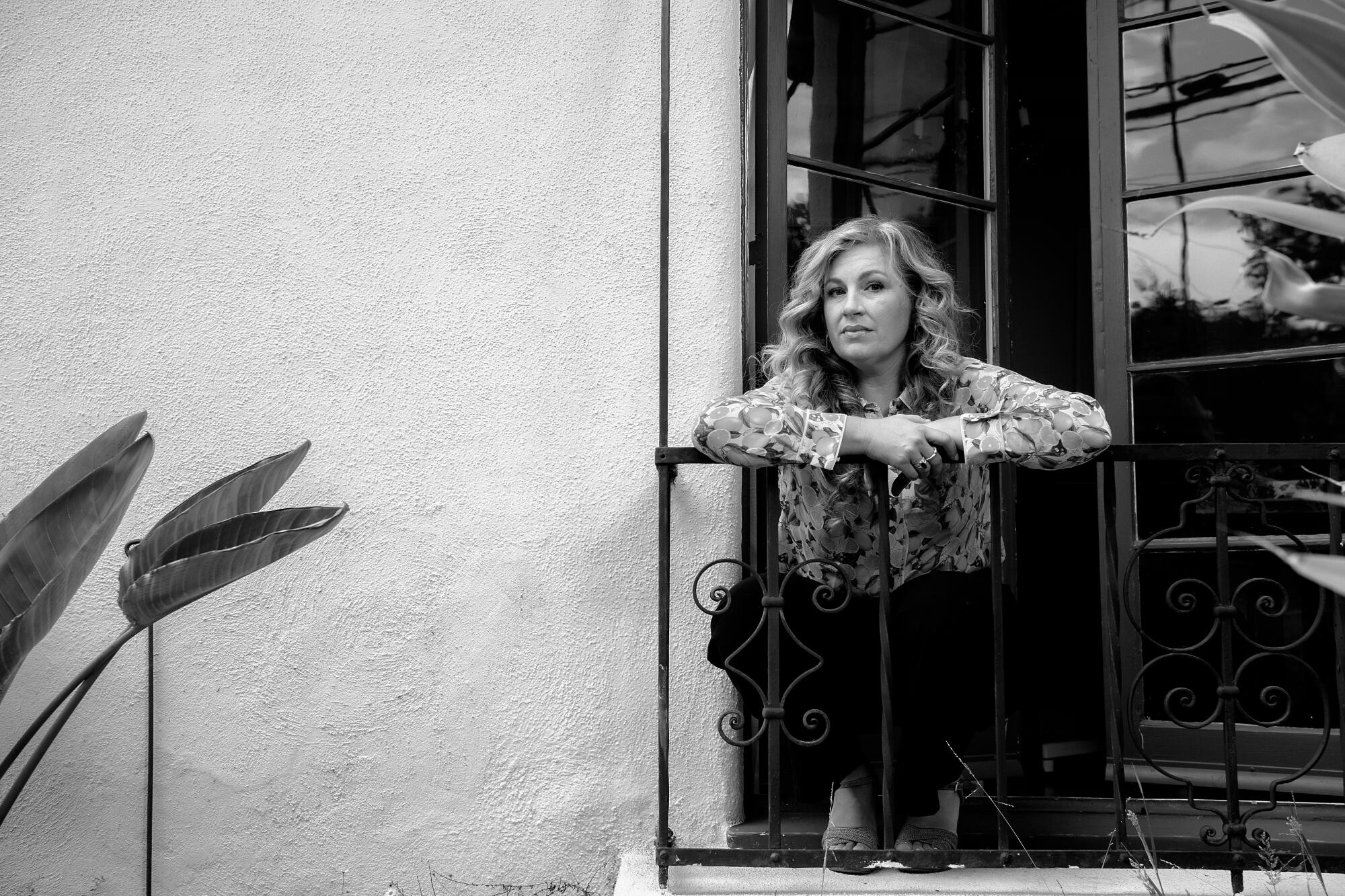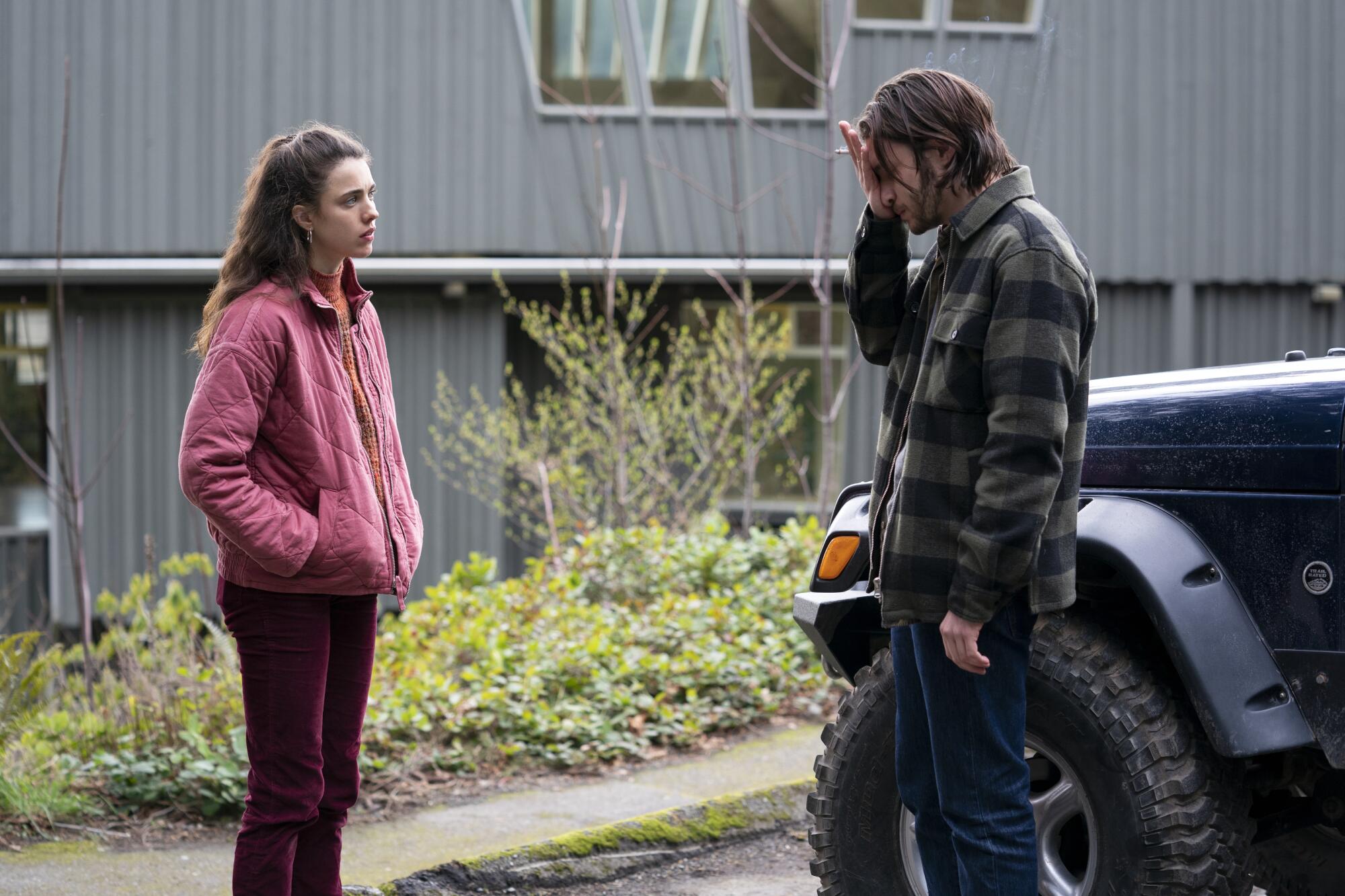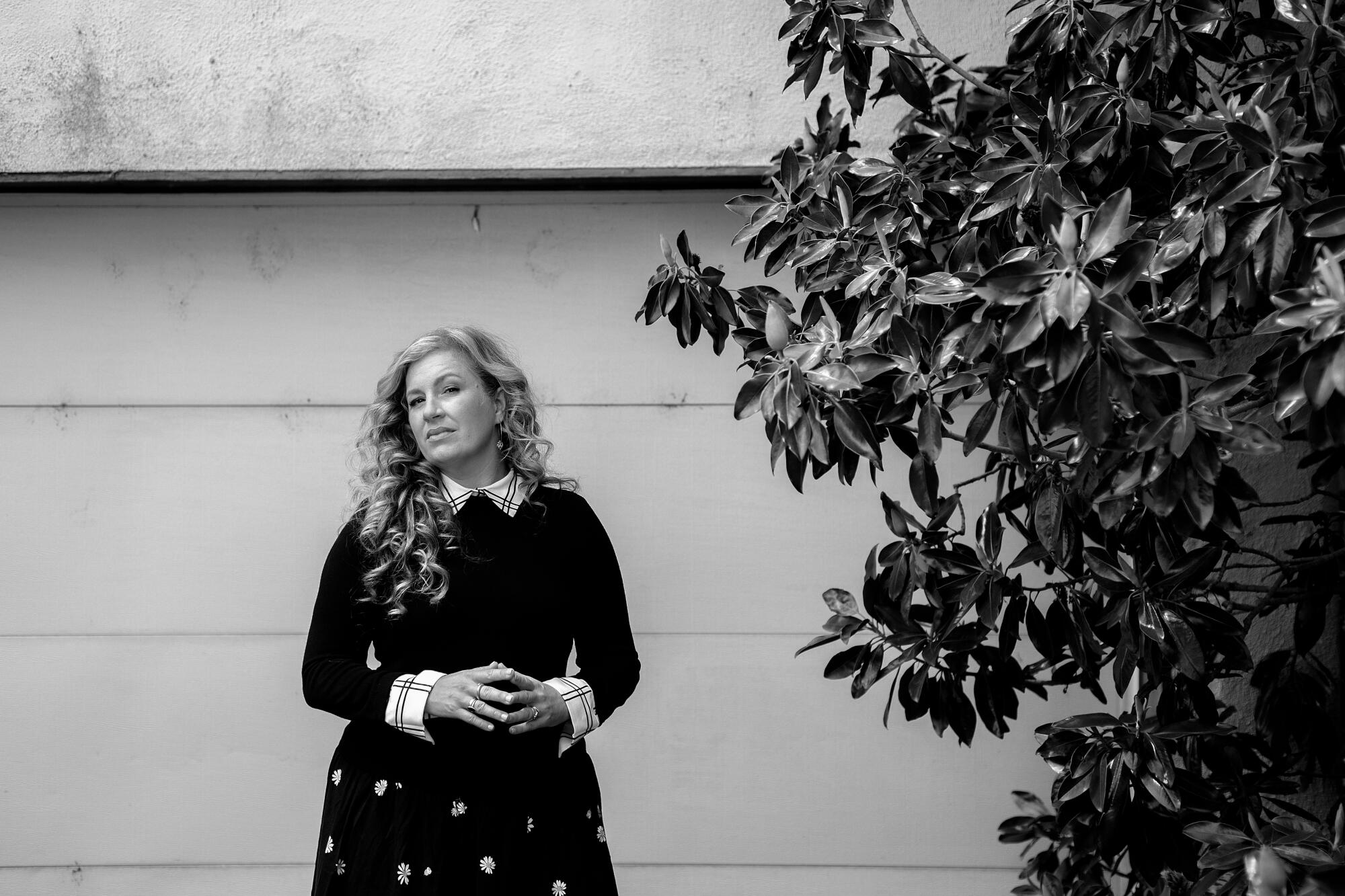
On March 20, 2020, the “Maid” writers room canceled lunch and went home. COVID-19 was raging through Los Angeles and like everybody else on the planet, we moved to Zoom. We thought we’d be remote for a week or two. Maybe three.
Thirteen months later, I returned to the “Maid” room. It felt like visiting ancient Pompeii; the space was frozen in time, abandoned in a hurry. Our box of Cheez-Its was still on the table. Our outlines were still on the white board. Our now-obsolete schedule was yellowing on the wall. Our good-luck mermaid doll was sprawled on the table, as if stuck in ash. I felt a (now very familiar) tightness in my chest when I was back in that room.
“Maid” became 100% virtual during COVID. We did everything — the writing, casting, hiring, scouting, prep — on Zoom. We even had our first rehearsal with our star, Margaret Qualley, online. She propped a laptop up on a wobbly lamp that kept falling over. The writers became tiled boxes on a screen — like the “Brady Bunch,” only poorly lit — as we tried to be creative from home.

From the outside, it would seem like a writers room would work well remotely; writers love computers and hate getting dressed. But in reality, Zoom made it hard to collaborate. There were constant interruptions. Dogs barked. Doorbells rang. Wi-Fi froze. Children photobombed. It was hard to piggyback ideas off each other; we couldn’t read body language or throw Cheez-Its at each other. And we were all wracked with worry and exhaustion. These were the days of peak COVID, when we were still wiping down groceries with bleach and banging on pots at night. We wanted to batten down the hatches, not open ourselves up to write an emotional show about trauma.
In August 2020, after five months of working remotely, “Maid” went into full production and the principal cast and crew relocated to Victoria, British Columbia, to shoot the show. This was celebratory news, but it came with some intense travel restrictions. Not only could just a small handful of us go to Canada, we couldn’t bring our loved ones. Worse, we couldn’t tell them when we’d see them again. There was a chance we wouldn’t be back for nine months. And the icing on the cake: We had to kick off this lonely expedition with a two-week quarantine in a hotel room.
When I arrived, Victoria was engulfed in a thick, choking smoke coming from the forest fires that were ravaging the West Coast. I couldn’t see an inch outside my hotel window. This suffused me with a sense of apocalyptic doom. I spent hours staring at a generic hotel painting of a ship lost at sea. I struggled to sleep. I stopped eating. I couldn’t write. This is a five-alarm emergency for the head writer of a show in production. I had a mountain of rewrites to do for COVID safety compliance. Extras had to be cut, indoor scenes had to move outdoors, sex scenes had to become … sexy conversations.

Also, I still had to write the final episodes of the show and the person with whom I usually wrote, my husband Colin, (also a writer-producer on “Maid”) was a million miles away, being the sole playdate and parent to our isolated 7-year-old. The producers checked in — How’s the writing going, Moll? Need anything? — and I didn’t know how to answer. What I needed was my daughter.
I started experiencing a tightness in my chest and on Day 9, I had my first full-blown panic attack. For me, it feels like a series of punches to the chest. I got to know the bathroom floor well. Desperate for something — company? help? — I returned to Stephanie Land’s memoir, “Maid.” As a single mother living below the poverty line, her whole life is a series of punches to the chest. She cleans toilets for $8 an hour. She doesn’t know if she will feed or house her daughter. She endures horrible separation anxiety when her daughter is with her abusive ex. She is utterly alone and invisible — not just in her own story, but in real life.
I remembered “Maid” was bigger than me. My experience in quarantine was a sort of hell, but it was only my reality for two weeks. It was Stephanie Land’s reality every day.
Three months into production, Colin and my daughter were able to join me in Canada and life got easier. Colin and I hunkered down and wrote the final episodes, and along with our incredible cast and crew, we made a show I’m proud of. On the weekends, my daughter ate Nanaimo bars and watched the sea otters play. We survived the volcano, we were lucky. Back in Los Angeles, in that abandoned writers room, my chest tightened and I thought of Alex, our hero. She never can stop looking over her shoulder for the next wave, the next bill, the next pandemic, the next eruption. I think after the last couple years, we can all relate.
More to Read
From the Oscars to the Emmys.
Get the Envelope newsletter for exclusive awards season coverage, behind-the-scenes stories from the Envelope podcast and columnist Glenn Whipp’s must-read analysis.
You may occasionally receive promotional content from the Los Angeles Times.







